Breastfeeding Peer Counselor



The Breastfeeding Peer Counselor Program was added to Stanly County’s WIC Program in May 2010 to supplement the services already available to WIC participants by providing more personalized support to WIC breastfeeding mothers and their babies. The Breastfeeding Peer Counselor Program works because of the “mother-to mother connection” and “loving support” being given by a peer. Peer counselors help prenatal WIC clients and WIC mothers by giving information about infant feeding choices,educating moms on how to get a good start in breastfeeding, preventing common breastfeeding problems and showing them how to work breastfeeding into their busy lives. “You can DO it!” when it comes to breastfeeding and a peer counselor is here to help.
What does a peer counselor do? A peer counselor contacts WIC’s prenatal clients who express interest in breastfeeding peer counselor services at least once a trimester and more often as their expected due date approaches. She calls to see how you are doing; how your pregnancy is progressing, answers your infant feeding questions and help you prepare for breastfeeding your new baby. After your baby is born, she will contact you weekly for the first few weeks and then monthly for the first six months to see how you and the baby are adjusting, how breastfeeding is going and to answer any breastfeeding questions and concerns you might have at that time. The peer counselor is available at the WIC Clinic for private office consultation to help mom and baby with latching and positioning if needed. She, also, helps moms stay close with their babies through breastfeeding if they have to go back to work or school.
#######
Nondiscrimination Statement –
English & Spanish – March 2016
In accordance with Federal civil rights law and U.S. Department of Agriculture (USDA) civil rights regulations and policies, the USDA, its Agencies, offices, and employees, and institutions participating in or administering USDA programs are prohibited from discriminating based on race, color, national origin, sex, disability, age, or reprisal or retaliation for prior civil rights activity in any program or activity conducted or funded by USDA.
Persons with disabilities who require alternative means of communication for program information (e.g. Braille, large print, audiotape, American Sign Language, etc.), should contact the Agency (State or local) where they applied for benefits. Individuals who are deaf, hard of hearing or have speech disabilities may contact USDA through the Federal Relay Service at (800) 877-8339. Additionally, program information may be made available in languages other than English.
To file a program complaint of discrimination, complete the USDA Program Discrimination Complaint Form, (AD-3027) found online at: http://www.ascr.usda.gov/complaint_filing_cust.html, and at any USDA office, or write a letter addressed to USDA and provide in the letter all of the information requested in the form. To request Chapter 4: CIVIL RIGHTS 4 Section 2: PUBLIC NOTIFICATION NC WIC Program Manual October 2016 a copy of the complaint form, call (866) 632-9992. Submit your completed form or letter to USDA by:
(1) mail: U.S. Department of Agriculture
Office of the Assistant Secretary for Civil Rights
1400 Independence Avenue, SW
Washington, D.C. 20250-9410;
(2) fax: (202) 690-7442; or
(3) email: [email protected]
This institution is an equal opportunity provider.
#######
En acuerdo con la Ley Federal de Derechos Civiles del Departamento de Agricultura de EE.UU. y los reglamentos y políticas de derechos civiles, El Departamento de Agricultura de los Estados Unidos, sus agencias, oficinas y empleados, y a las instituciones que participan en la administración de programas o USDA tienen prohibido discriminar basándose en la raza, color, origen nacional, sexo, discapacidad, edad o de represalia o venganza por derechos civiles previa actividad en cualquier programa o actividad realizada o financiada por el USDA.
Las personas con discapacidades que necesitan medios alternativos de comunicación para obtener información del programa (por ejemplo, Braille, letras grandes, cintas de audio y el lenguaje de señas americano, etc.), debe ponerse en contacto con la Agencia (Estatal o local) donde se aplica para los beneficios. Las personas sordas, con deficiencias auditivas o tienen discapacidades del habla pueden ponerse en contacto con el USDA a través del servicio de retransmisión Federal al (800) 877-8339. Además, la información sobre el programa puede estar disponible en otros idiomas aparte del inglés.
Para presentar una queja de discriminación, complete el formulario de queja del Programa USDA Discriminación (AD-3027) que se encuentra en línea en: http://ww.ascr.usda.gov/complaint_filing _cust.html, y en cualquier oficina del USDA, o escribir una carta dirigida a la USDA y proporcionar en la carta toda la información solicitada en el formulario. Para solicitar una copia del formulario de reclamación, llame al (866) 632-9992. Envíe el formulario o una carta al USDA por:
1) Correo: U.S. Department of Agriculture
Office of the Assistant Secretary for Civil Rights
1400 Independence Avenue, SW
Washington, D.C. 20250-9410;
2)Fax: (202) 690-7442 o
3)Email: [email protected]
Esta institución es un proveedor de igualdad de oportunidades.

